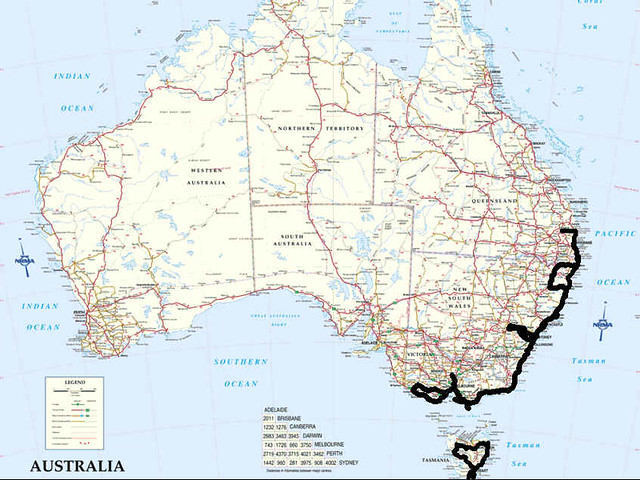Tomorrow in my History of American Religion class, we’re going to start talking about the rise of evangelicalism and its impact on nineteenth-century American culture. One of the problems we’ll have to address is exactly what “evangelical” means.
I usually start by reading a column Nicholas Kristof wrote for the
New York Times a few years ago (March 4, 2003) called “God, Satan and the Media.” (The only free version of the column I can find online is
here.) In the column, Kristof noted that although almost half of Americans claim to be evangelicals, the rest of American society doesn’t seem to understand them. The main point I got from Kristof’s column is that he himself doesn't understand the word “evangelical”--which makes him pretty much like the rest of us.
“Evangelicals are increasingly important in every aspect of American culture,” Kristof wrote. “Among the best-selling books in America are Tim LaHaye's Christian ‘left behind’ series about the apocalypse; about 50 million copies have been sold. One of America’s most prominent television personalities is Benny Hinn, watched in 190 countries, but few of us have heard of him because he is an evangelist.”
Kristof described the popular series of
Left Behind books as if the apocalypse is an evangelical thing. He is apparently unaware that not all evangelicals believe in that version of the end times, or that several major denominations (including Methodists and Presbyterians) have actually come out against the “dispensationalist” theology of the books.
He also confused evangelicals with Pentecostals. Later in the article, he mentioned people speaking in tongues in his hometown of Yamhill, Oregon. “In the evangelical tinge to its faith, Yamhill is emblematic of a huge chunk of Middle America,” he wrote. But while Pentecostals, who believe that the gifts of the Holy Spirit include speaking in tongues, might be evangelicals, not all evangelicals are Pentecostals. And despite Kristof’s assertion, not every evangelical follows faith healer Benny Hinn or even knows who he is.
“President Bush has said that he doesn't believe in evolution (he thinks the jury is still out),” Kristof continued, getting at another evangelical belief. But by equating evangelicalism with a belief in creationism, Kristof confused evangelicals with fundamentalists, who insist on a literal reading of the scriptures.
Kristof wrote of “evangelicals’ discomfort with condoms and sex education.” Many evangelicals are supportive of and even active in sex education (and not necessarily the abstinence-only approach).
Kristof’s article confirms that “evangelical” is a slippery word, hard to pin down with any precision.
Historically, the distinguishing aspect of “evangelical” was the conversion experience--what has come to be known, among many, as being “born again.” This was part of a general trend away from Calvinist predestination, which said that eternal salvation is granted only to an exclusive few, “the elect,” and that nothing we do can save us. Evangelicals were those who believed that we do have a role in salvation. (The fancy word for this is “arminianism,” named for Dutch Theologian Jacobus Arminius.) That was pretty much it. Sex education, evolution, speaking in tongues, dispensationalism, and faith healing simply had nothing to do with a definition of “evangelical.”
Of course, everything’s changed now, leading to confusion for everyone, from
NYTimes’s columnists to my students (and their professor). D.G. Hart, in
That Old-Time Religion in America: Evangelical Protestantism in the Twentieth Century, describes what happened: The current sense of “evangelical” came into common usage around 1950, when conservative Protestant leaders, wanting to embrace the biblical basis of fundamentalism but make it more appealing, co-opted the word to tap into a religious movement that was growing outside of churches--through organizations (like Youth for Christ), publications (such as
Christianity Today), and radio and television.
Hart’s “recipe” for evangelicalism: “Combine two cups of inerrancy, one cup of conversion, and a pinch of doctrinal affirmations; form into a patchwork of parachurch agencies, religious celebrities, and churches; season with peppy music professionally performed; and bake every generation.” This is from a later Hart book,
Deconstructing Evangelicalism, in which he says that “evangelicalism needs to be relinquished as a religious identity because it does not exist. In fact it is the wax nose of twentieth-century American Protestantism.”
So “evangelical” doesn’t mean what it used to mean (if it means anything any more). Take Jimmy Carter. He’s a good evangelical, in my book (and in
his). But does he fit Kristof’s description? Historically, we should ask WWJD?, with the “J” meaning, of course, Jimmy Carter. (Today, it’s more WWWD.)
Kristof is wrong, even with the new definition of "evangelical." Still, his column is a good way to begin our discussion.
Update: See
here.
Kristof is not the only one to make this mistake. For example (
lots of examples), see the comments for the movie
Jesus Camp at
Amazon or at
IMDB. Not all evangelicals are like that, not by a long shot, but the reviewer comments often say that sort of thing.
Part of the above was originally published in the Cartersville Daily Tribune News.









